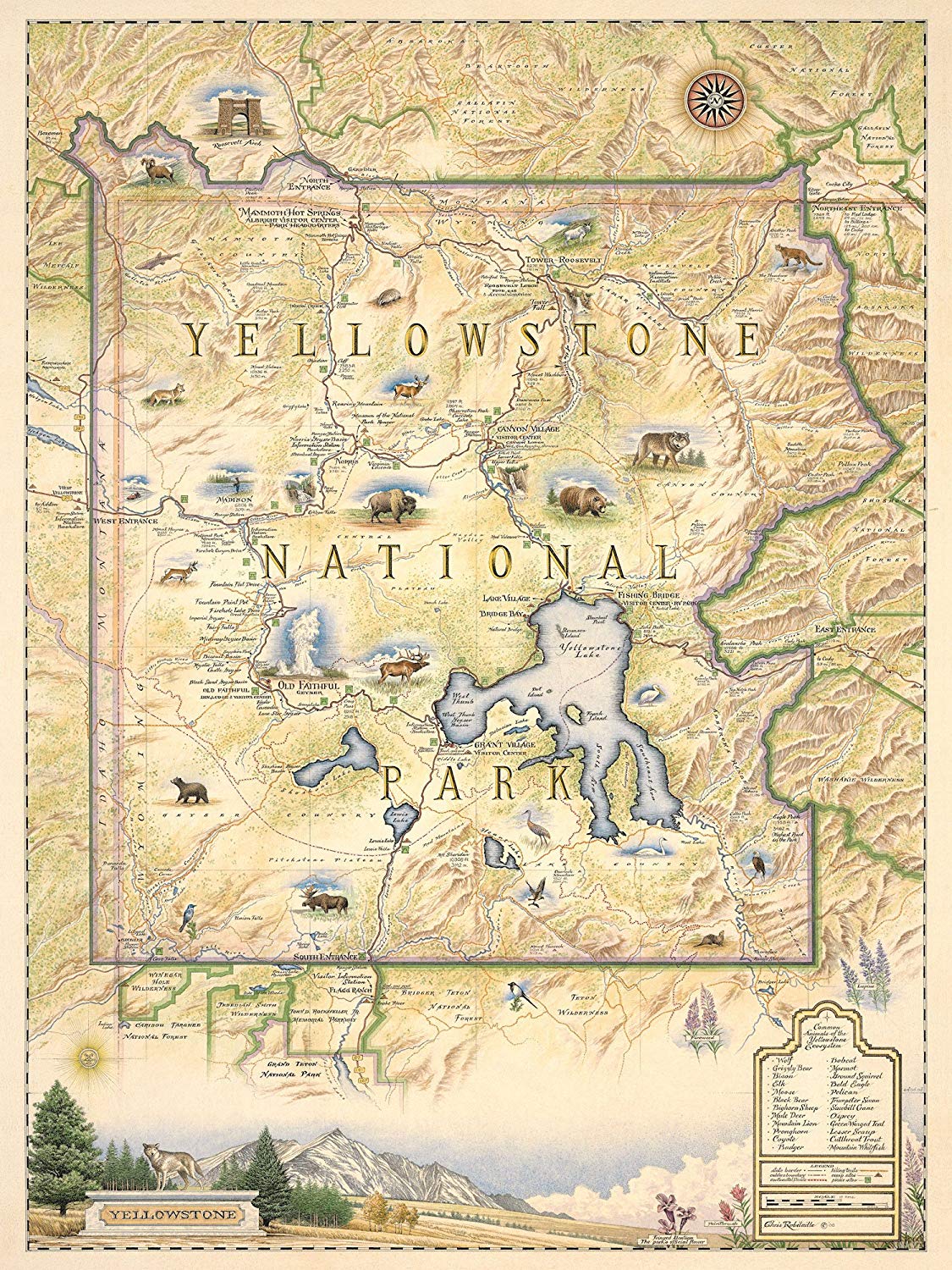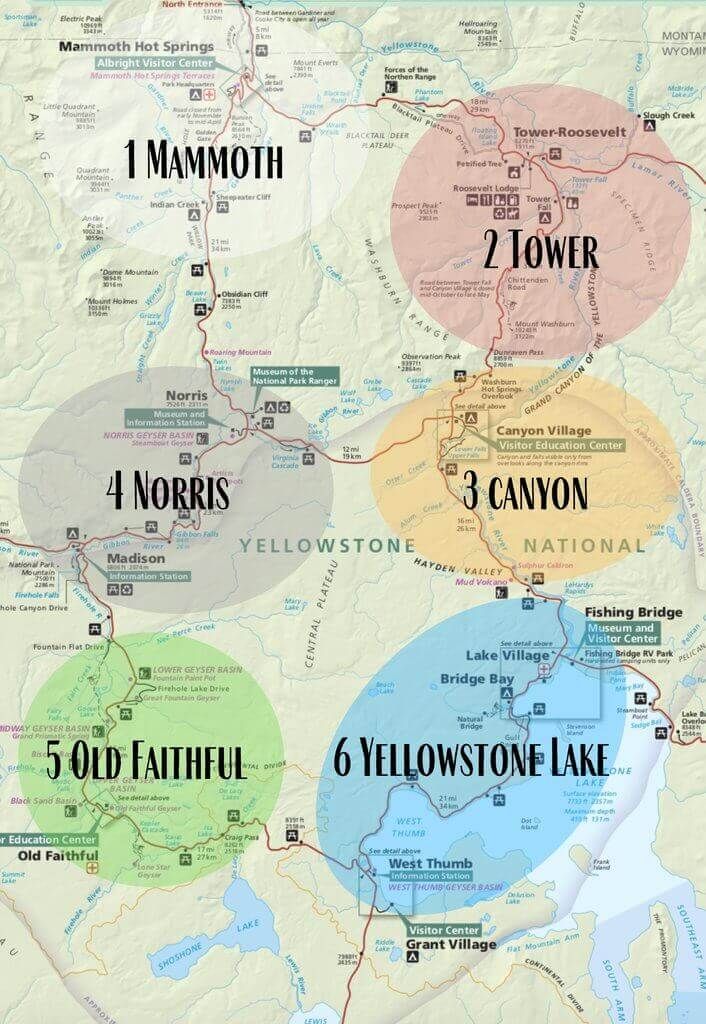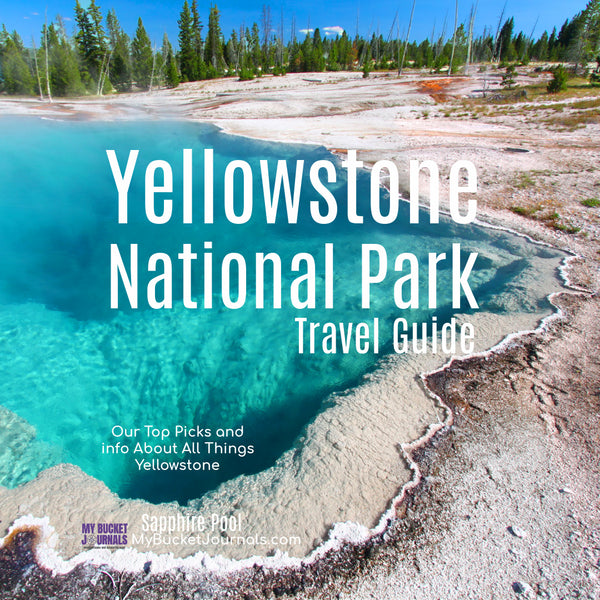Navigating the Wonders: A Guide to Yellowstone National Park in Wyoming
Related Articles: Navigating the Wonders: A Guide to Yellowstone National Park in Wyoming
Introduction
With enthusiasm, let’s navigate through the intriguing topic related to Navigating the Wonders: A Guide to Yellowstone National Park in Wyoming. Let’s weave interesting information and offer fresh perspectives to the readers.
Table of Content
Navigating the Wonders: A Guide to Yellowstone National Park in Wyoming

Yellowstone National Park, a sprawling wilderness encompassing over 3,472 square miles, is a testament to the raw power and beauty of nature. While it stretches across portions of Montana, Idaho, and Wyoming, the majority of the park, and its most iconic features, lie within the state of Wyoming. Understanding the Wyoming map of Yellowstone is key to unlocking the park’s unparalleled experiences.
A Glimpse into the Wyoming Landscape
The Wyoming portion of Yellowstone is a diverse tapestry of landscapes, each contributing to the park’s captivating allure. The rugged grandeur of the Absaroka Range dominates the northern and eastern boundaries, offering breathtaking vistas and challenging trails. The Yellowstone River, a lifeblood artery, meanders through the park, its waters carving canyons and nourishing diverse ecosystems.
The Heart of the Park: Yellowstone Lake and its Surroundings
Yellowstone Lake, the largest high-altitude lake in North America, resides entirely within Wyoming. Its vast expanse, surrounded by towering peaks and forested shores, provides a sense of serenity and wonder. This area is home to several key attractions, including:
- West Thumb Geyser Basin: A geothermal wonderland showcasing steaming vents, colorful pools, and the iconic "Black Sand Basin," a stark contrast to the vibrant hues surrounding it.
- Fishing Bridge: A popular spot for anglers seeking trout and other fish species within the lake’s cool waters.
- Grand View Point: A scenic overlook offering panoramic views of Yellowstone Lake, the Absaroka Range, and the vastness of the park.
- Yellowstone Lake’s South Arm: This area provides access to the scenic "Grand Canyon of the Yellowstone," a dramatic canyon carved by the Yellowstone River, showcasing vibrant hues of red, orange, and yellow.
The Northern Wyoming Frontier: Yellowstone’s Iconic Features
Venturing north from Yellowstone Lake, visitors encounter some of the most iconic features of the park, all located within Wyoming:
- Old Faithful Geyser: A predictable wonder, erupting every 90 to 120 minutes, captivating visitors with its impressive geyser plume.
- Upper Geyser Basin: A dazzling display of geothermal activity, showcasing numerous geysers, hot springs, and colorful pools, including the iconic "Morning Glory Pool."
- Mammoth Hot Springs: A mesmerizing landscape of travertine terraces, formed by the slow deposition of calcium carbonate from hot springs, creating a cascading white wonderland.
- Lamar Valley: A vast, open valley known for its abundant wildlife, including wolves, bison, elk, and pronghorn, making it a haven for wildlife enthusiasts.
Beyond the Main Attractions: Exploring Wyoming’s Hidden Gems
While the iconic features of Yellowstone are well-known, Wyoming holds hidden gems waiting to be discovered:
- Hayden Valley: A serene valley offering excellent wildlife viewing opportunities, particularly for bison and elk, as well as stunning sunsets over the Absaroka Range.
- Blacktail Deer Plateau: A high-altitude plateau offering breathtaking views of the Yellowstone River and the surrounding mountains, perfect for hiking and exploring.
- Shoshone Lake: A pristine alpine lake nestled in the Absaroka Range, offering excellent opportunities for fishing, kayaking, and enjoying the tranquility of the wilderness.
- Yellowstone River’s Upper Canyon: A dramatic canyon showcasing the power of the river as it carves through the volcanic landscape, revealing vibrant hues and unique rock formations.
Navigating the Wyoming Map of Yellowstone
To fully appreciate the Wyoming map of Yellowstone, consider the following:
- Park Entrances: The park has five entrances, with two located in Wyoming: the North Entrance (Gardiner, Montana) and the East Entrance (Cody, Wyoming).
- Roads: Yellowstone’s road system is extensive, offering access to most major attractions. However, due to wildlife and weather conditions, road closures are common, especially during winter months.
- Park Loop Road: A scenic loop road encircling the park’s central attractions, offering a convenient way to explore the park’s highlights.
- Backcountry Access: The park offers numerous hiking trails and backcountry camping opportunities, allowing for immersive experiences in the wilderness.
Frequently Asked Questions
Q: When is the best time to visit Yellowstone National Park in Wyoming?
A: The best time to visit depends on personal preferences and interests. Spring (May-June) offers vibrant wildflowers and fewer crowds, while summer (July-August) provides the warmest temperatures and full access to all attractions. Fall (September-October) offers stunning foliage and the chance to witness wildlife migration. Winter (November-April) offers unique opportunities for snowshoeing, cross-country skiing, and observing wildlife in a winter wonderland setting.
Q: What are the main attractions in Yellowstone National Park in Wyoming?
A: Yellowstone’s main attractions include Old Faithful Geyser, Upper Geyser Basin, Mammoth Hot Springs, Yellowstone Lake, Grand Canyon of the Yellowstone, Lamar Valley, and Hayden Valley.
Q: How do I get to Yellowstone National Park in Wyoming?
A: The park can be accessed by car, bus, or air. The nearest airports are in Cody, Wyoming, and Bozeman, Montana.
Q: What is the best way to explore Yellowstone National Park in Wyoming?
A: The best way to explore depends on your interests and time constraints. Driving the Park Loop Road is a great way to see the main attractions, while hiking and backcountry camping offer more immersive experiences.
Q: Is Yellowstone National Park safe?
A: Yellowstone is generally safe, but visitors should be aware of potential hazards, including wildlife encounters, geothermal activity, and weather conditions.
Tips for Visiting Yellowstone National Park in Wyoming
- Plan Ahead: Yellowstone is a popular destination, so book accommodations and activities in advance, especially during peak season.
- Be Wildlife Aware: Yellowstone is home to a diverse array of wildlife, including bears, wolves, and bison. Always maintain a safe distance and follow park regulations.
- Stay on Designated Trails: Staying on designated trails helps protect the environment and ensures your safety.
- Be Prepared for Weather Changes: Weather in Yellowstone can change rapidly, so be prepared for all conditions.
- Respect the Environment: Leave no trace behind and practice responsible recreation.
Conclusion
The Wyoming map of Yellowstone reveals a landscape of unparalleled beauty, power, and wonder. From the iconic geysers to the serene lakes, the park offers a glimpse into the earth’s geological forces and the resilience of nature. Whether you’re seeking adventure, relaxation, or a connection with the natural world, Yellowstone National Park in Wyoming promises an unforgettable experience. Remember to explore responsibly, respect the environment, and embrace the awe-inspiring beauty of this remarkable park.








Closure
Thus, we hope this article has provided valuable insights into Navigating the Wonders: A Guide to Yellowstone National Park in Wyoming. We appreciate your attention to our article. See you in our next article!